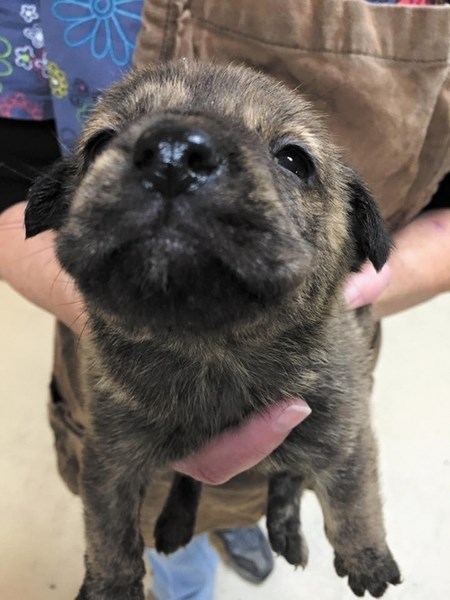The Cochrane & Area Humane Society is currently hosting cats and dogs from a Saskatchewan animal seizure.
Earlier this November, more than 150 dogs and cats were rescued from Sturgeon Lake, Sask., with the help of the Canine Action Project (CAP). Over four days, 144 dogs and 19 cats were taken from the community to different animal rescues across Western Canada, with 40 of the animals landing in Cochrane.
“The (CAP) contacted us and asked if we could assist as they were helping the community with their overpopulation issues and fortunately we had the space at the time so we said absolutely,” said Jaimie Anton, the society’s fund-development officer.
The shelter took in 18 dogs at the beginning of November and brought in another 22 dogs last week. When animals are first brought into the shelter, they are put into quarantine as they receive parasite treatment (de-worming and vaccination) and get assessed by a veterinarian.
“When they go up for adoption will depend on health issues,” Anton said.
“There are about five with broken bones . . . we are trying to figure out the best option (for these animals), whether it be amputation or some might be treatable. Some are old breaks so it will depend on what our vet clinic can do for those guys.”
Staff said the intake of dogs has been a mix of breed types and ages, including some mom and pup cases. The health issues vary, too. With the broken bones and limbs already mentioned, there are also other cases such as Romeo, a larger black and tan dog with severe mange.
“Romeo will be here for a couple months until he is healed up,” Anton explained. “(But) the animals have been adjusting pretty good since they’ve been in the shelter.”
It costs approximately $40-$45 per day to board one animal in the shelter, organizers explained.
As of now there is no fundraiser planned to help out with the extra costs but any support is welcome, Anton said.
“We do what we can and the vet clinic has been very busy for the past couple of weeks for sure – If people want to support these guys then that will be fantastic because some of these guys will need extensive vet care and extensive time here” Anton said.
“We are absolutely fortunate that we have some amazing foster homes that have helped us out, which helps us with the space as well. So far a fair number of animals have gone to foster with our volunteers.”
How to prevent situations like this?
Prevention of overpopulation with spays and neuters, organizers say.
“Our big thing is spaying and neutering, because when you run into overpopulation issues that is when you end up with large quantities of animals,” Anton explained. “Basically, anything we can do to help with rural animal welfare, we step up to be a leader in that regard.”
For more information on the animals at the Cochrane & help, contact [email protected] or call 403-932-2072.




